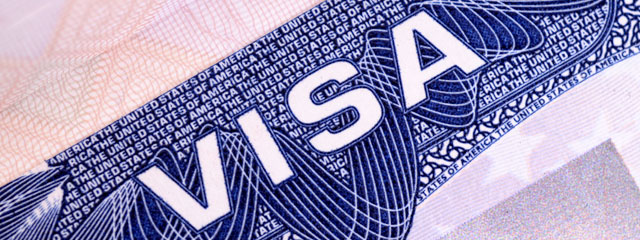J-1 Exchange Visitors
J-1 visas apply to individuals participating in a recognized international exchange program. The purpose of the J-1 visa is to promote cultural and educational exchange between the U.S. and other countries. The goal of the program is that foreign citizens will come to the U.S. to share their cultural experience and learn about U.S. culture, and, in turn, take their experiences back to their home country as a way of improving international relations.
There are various programs to facilitate J-1 sponsorship in different fields of endeavors. The J-1 visa may be available for Professors and Research Scholars, Short-term Scholars, Trainees, College or University Students, Teachers, Secondary School Students, Graduate Medical Education or Training, International and Government Visitors, Camp Counselors, Summer Work/Travel Students and Au Pairs. A J-1 visa is obtained by applying through an approved sponsoring organization that can be a school, company, public or private organization approved by the U.S. Department of State. The sponsor will issue a Form IAP-66 that is used by the foreign national to obtain a J visa.
Some exchange programs permit trainees to obtain paid on-the-job training and internships with firms, institutions, and agencies. Under this category, the J-1 trainee is usually admitted to the U.S. for a period from 3 to 18 months. Often, the company or its attorneys will coordinate with J program sponsors to acquire J-1 trainee visas.
The J-1 student and researcher program allows the J-1 visa holder to accept training in the U.S. J-1 students are generally admitted for the length of their educational studies in the U.S. J-1 students often receive a period of authorized practical training (18 months for undergraduate and pre-doctoral training and 36 months for post-doctoral training) similar to F-1 students. The authorization for such employment is issued by the J program sponsor and does not require prior USCIS approval.
The J-2 dependent spouse of a J-1 visa holder may qualify for work authorization as long as it is demonstrated that the spouse’s income is not necessary to support the J-1 visa holder.
Home Residency Requirement
Certain J-1 exchange visitors may be subject to a two year foreign home residency requirement at the end of their period of stay (212e). The two year foreign home residency may apply to J-1 exchange visitors who participate in programs which were financed in whole or in part, directly or indirectly, by an agency of the U.S. Government or by the exchange visitor’s government, or who are nationals or residents of a country which have been designated by U.S. Information Agency as requiring the skills of the exchange visitor. Those subject to the home residency requirement must return to their country of nationality or last residence after completing their program in the U.S., and must reside there physically for two years before they may become eligible to apply for an immigrant or temporary worker visa.
A complete list of skills by country is available here.
In certain cases a waiver to the home residency requirement may be available.
Waiver to Home Residency Requirement
J-1 visitors who are subject to, but do not wish to comply with, the two-year foreign residency requirement, may apply for a waiver of that requirement under one of five grounds:
- No Objection statement from the applicant’s country of nationality or last residence;
- Request by an interested U.S. government agency;
- Persecution in the country where the J-1 visitor would have to return;
- Exceptional hardship to a U.S. citizen or permanent resident spouse or child; or
- Request by a designated State Department of Health, or its equivalent (for foreign medical graduates only).
Detailed information on the process of obtaining a waiver of the home residency requirement is available from Department of State here.



